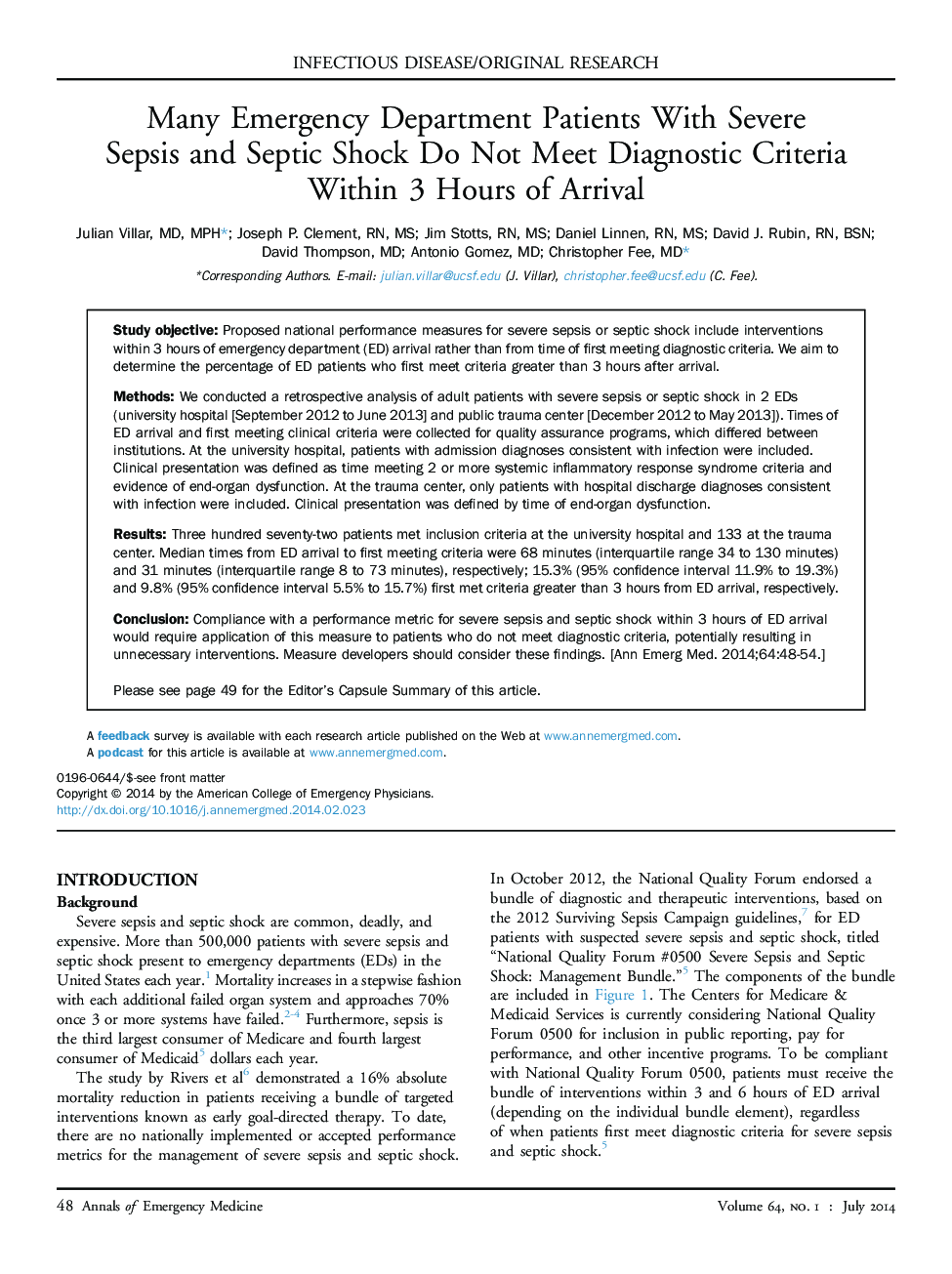| Article ID | Journal | Published Year | Pages | File Type |
|---|---|---|---|---|
| 3228917 | Annals of Emergency Medicine | 2014 | 7 Pages |
Study objectiveProposed national performance measures for severe sepsis or septic shock include interventions within 3 hours of emergency department (ED) arrival rather than from time of first meeting diagnostic criteria. We aim to determine the percentage of ED patients who first meet criteria greater than 3 hours after arrival.MethodsWe conducted a retrospective analysis of adult patients with severe sepsis or septic shock in 2 EDs (university hospital [September 2012 to June 2013] and public trauma center [December 2012 to May 2013]). Times of ED arrival and first meeting clinical criteria were collected for quality assurance programs, which differed between institutions. At the university hospital, patients with admission diagnoses consistent with infection were included. Clinical presentation was defined as time meeting 2 or more systemic inflammatory response syndrome criteria and evidence of end-organ dysfunction. At the trauma center, only patients with hospital discharge diagnoses consistent with infection were included. Clinical presentation was defined by time of end-organ dysfunction.ResultsThree hundred seventy-two patients met inclusion criteria at the university hospital and 133 at the trauma center. Median times from ED arrival to first meeting criteria were 68 minutes (interquartile range 34 to 130 minutes) and 31 minutes (interquartile range 8 to 73 minutes), respectively; 15.3% (95% confidence interval 11.9% to 19.3%) and 9.8% (95% confidence interval 5.5% to 15.7%) first met criteria greater than 3 hours from ED arrival, respectively.ConclusionCompliance with a performance metric for severe sepsis and septic shock within 3 hours of ED arrival would require application of this measure to patients who do not meet diagnostic criteria, potentially resulting in unnecessary interventions. Measure developers should consider these findings.
